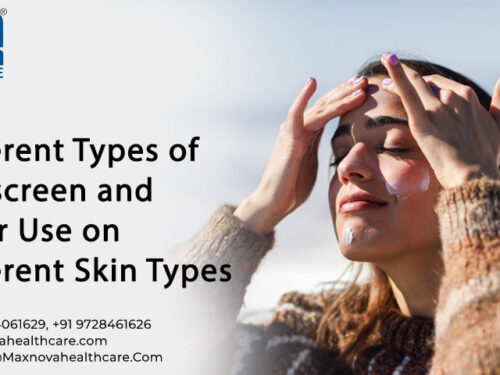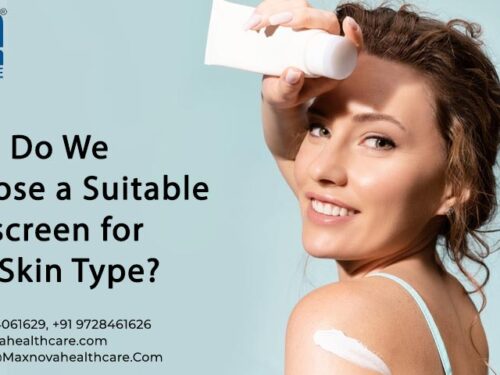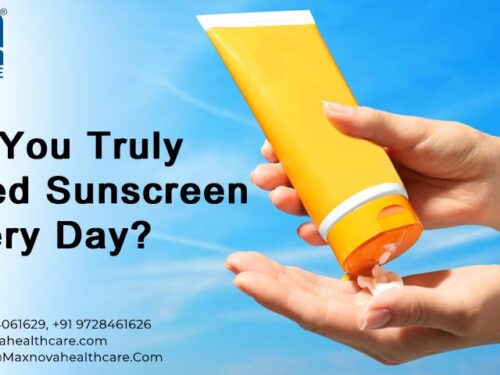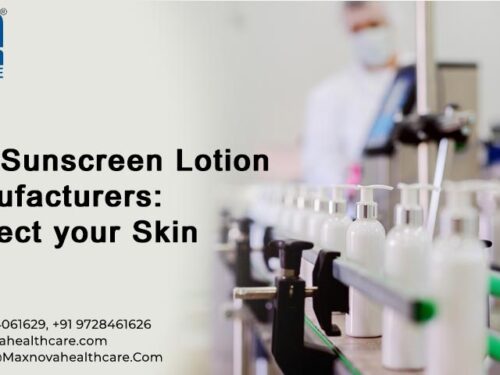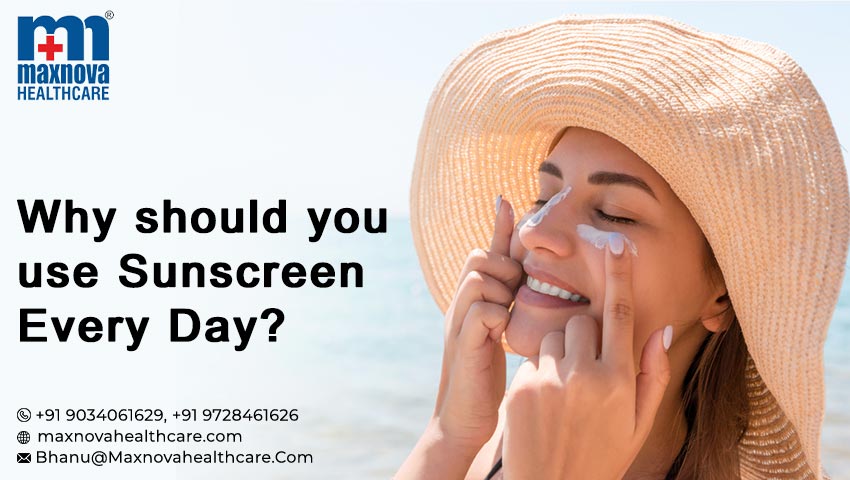

Spending time outdoors is great for your health and can boost vitamin D. But we need to be careful with too much sun without protection. The sun has two main types of light, called UVA and UVB, which can harm our skin. These rays can mess with our skin’s DNA and even lead to skin cancer. Not just that, they can also cause other not-so-cool changes to our skin.
Surprisingly, even if you don’t spend much time outside, you still get exposed to these rays. That’s where sunscreen comes in! Using it regularly helps keep our skin safe from the sun’s not-so-friendly effects.
Let’s Simplify the Perks of Using Sunscreen Daily
- No More Sunburns: Sunscreen is like a shield against sunburns. It stops those sun rays (the UVB ones) from making your skin all red and painful. Even on cloudy days, these rays can sneak through, so wearing sunscreen every day is like putting on armor for your skin.
- Say Goodbye to Skin Cancer Worries: Too much sun can mess with your skin’s DNA, making it go a bit crazy and leading to skin cancer. Sunscreen is like a superhero that blocks these harmful rays and keeps your skin safe.
- Stay Young and Fresh: Sunlight might be nice, but too much can make your skin look old before it’s time. Sunscreen is like a time-stopping lotion; it keeps those pesky UV rays from making wrinkles and spots on your skin.
- No More Red and Blotchy Skin: The sun can make the tiny blood vessels on your face act up, making them look all patchy and red. Sunscreen is like a cool friend that stops this from happening, keeping your skin looking even and happy.
- Avoid Dark Spots Drama: The sun can be a troublemaker, causing dark patches on your skin that are hard to get rid of. Sunscreen is like a bodyguard, protecting your skin and preventing these dark spots from showing up or getting worse.
- Keep Skin Conditions Calm: Some skin problems like rashes and rosacea can get worse in the sun. Sunscreen acts as a gentle shield, protecting your skin from the sun’s rays. It’s especially important if you’re taking certain medicines that make your skin more sensitive.
So, daily use of sunscreen fights off sun damage and keeps your skin looking and feeling awesome every day. Don’t forget to put it on.
How Does Sunscreen Protect You?
Sunscreen shields the skin from harmful UV rays through a combination of diverse ingredients, each playing a specific role in protection and skincare:
- Suncat DE: acts as a versatile agent, providing sunscreen protection, anti-oxidant benefits, and anti-aging properties.
- Zinc Micro: Combines antimicrobial and non-comedogenic properties, aiding in healing sunburn-induced skin damage.
- Titanium Micro: A mineral filter that offers broad-spectrum protection against both UVB and UVA rays.
- Uvinul A Plus: known as diethylamino hydroxybenzoyl hexyl benzoate (DHHB), effectively filters UVA rays, making it a crucial element in broad-spectrum sunscreens.
- OMC: Absorbs UVB rays, protecting the skin from potential damage.
- Octocrylene: commonly found in chemical sunscreens and anti-aging creams, shields the skin from harmful UV rays.
- Oxynex S2: ensures cosmetic stability by protecting against pro-oxidative factors such as light, temperature variations, and metal traces.
- Infraguard: Safeguards the skin from the pro-aging effects of infrared (IR) radiation.
Together, these ingredients create a comprehensive defense, minimizing the skin’s absorption of radiation and promoting overall skin health.
What is SPF?
The sun protection factor is demystified. SPF, or sun protection factor, specifically shields against UVB rays, preventing sunburn. The SPF number indicates the extended time it takes for UVB rays to redden your skin compared to no sunscreen use. For instance, SPF 30 requires 30 times more exposure for a sunburn. SPF 15 blocks 93%, SPF 30 blocks 97%, SPF 50 blocks 98%, and SPF 100 blocks 99% of UV rays. However, no sunscreen achieves 100% blockage. Crucially, SPF solely addresses UVB rays, highlighting the need for broad-spectrum sunscreens that defend against both UVA and UVB for comprehensive sun protection.
How Much SPF is Enough?
Various medical organizations offer SPF recommendations, including:
- CDC and the World Health Organization advise SPF 15 or higher.
- Skin Cancer Foundation suggests SPF 15 daily and SPF 30 or higher for sun exposure.
- American Academy of Dermatology and the American Cancer Society recommend SPF 30 or higher.
- Ensure a minimum of SPF 15, emphasizing that higher SPFs provide increased protection. Balancing daily use with elevated SPF when exposed to the sun is a general guideline for effective sun care.
What’s the Best Way to Wear Sunscreen?
Effective sun protection hinges on proper sunscreen application. Ensure optimal defense by adhering to these guidelines:
- Opt for broad spectrum sunscreen to shield against UVA and UVB rays.
- Apply 30 minutes before heading outdoors, allowing time for absorption and effective protection.
- Use an ample amount, equivalent to a shot glass for the entire body and a quarter-size dollop for the face.
- Extend the application to include the lips, ears, and exposed scalp.
- Reapply every 2 hours, ensuring consistent coverage.
- After swimming or sweating, reapply even water-resistant sunscreen lotion to maintain optimal protection. Following these guidelines ensures sunscreen effectiveness, safeguarding the skin against the sun’s harmful effects.
Conclusion
Maxnova Healthcare stands out as the premier choice among Third Party Sunscreen Lotion Manufacturers. With an unwavering commitment to quality and innovation, we lead the industry in crafting superior sunscreen formulations. Our dedication to excellence, cutting-edge manufacturing practices, and client-centric approach make us the preferred partner for those seeking top-tier sunscreen solutions. Trust us for unparalleled expertise in Third Party Sunscreen Lotion Manufacturing.

